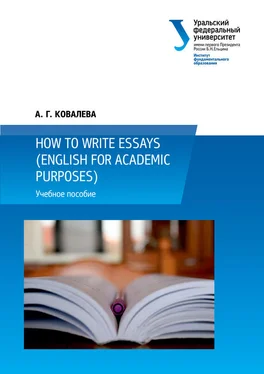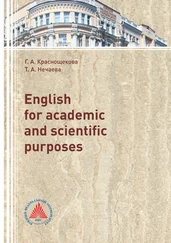On the other hand, a good paper handles a small topic that is interesting, important and significant for both the writer/researcher and reader and covers it thoroughly. Then the readers will be convinced and satisfied.
All papers, not only those for classes but also intended for publication in journals, have the limitations on their length. You keep your paper within these limitations.
Your topic has to be small enough for the length of the paper. It is very important to choose limited topic so you can cover every aspect in depth rather than large topic that you can only deal with shallowly. Your paper has to be complete, that is, you have to be able to discuss all important points and show your conclusion, otherwise your reader will not be satisfied with your argument.
Often, and for the best of motives, our problems in essay writing begin the very moment we are given the question. Anxious to get on with the work and not fall behind, we skip the interpretation stage and launch straight into our research. As a result, we read sources and take notes without a clear idea of what’s relevant, beyond some very general idea of the subject of the essay. Then finally, after hours of toil, tired and frustrated, and no clearer about what we’re doing, we’re left with a pile of irrelevant, unusable notes Yet, just an hour or two interpreting the question would not only have saved us this wasted time, but would have given us a clear idea of what the question is getting at and a better understanding of what the examiner is looking for in our work. And even more, it would have given us the opportunity to get our own ideas and insights involved at an early stage. Without this our work can seem routine and predictable: at best just the re-cycling of the ideas that dominate the subject.
So, what should you be looking for when you interpret a question? All essay questions tell you two things: the structure your essay should adopt for you to deal relevantly with all the issues it raises; and the range of abilities the examiner is expecting to see you use in answering the question. There are times in the research of every assay when you find yourself collecting material that is interesting and so closely argued that you find it difficult not to take notes from all of it, particularly when it’s relevant to the wider implications of the topic. But if it’s not relevant to the problems raised in this essay, ditch it! File it away for other essays, by all means, but don’t let it temp you in this essay. Otherwise it will lose focus and the reader will fall to understand what you’re doing and why.
With these warnings in mind it’s essential to pin down two things: how many parts there are to the question and what weight you will need to give to each part. With many questions these structural problems can be solved by analysing the key concepts used in the question.
Indeed, in most, if you fail to do this, the examiners will deduct marks: they will expect to see you show that you can analyse difficult abstract concepts and allow this to influence, if not determine, the structure of the essay.
For example, markers for the University of London are told to award the highest marks (70 – 100 %) to those students who “note subtlety, complexity and possible disagreements, [which they].. will discuss”, while only average marks (40 – 60 %) are to be awarded to the student who adopts a “More relaxed application” of the question, and who “follows [an] obvious line.. [and] uncritically accepts the terms of the question”.
Similarly, in the Department of Sociology at the University of Harvard students are told:
Papers will be graded on the basis of the completeness and clarity of your analysis and the persuasiveness of your recommendations. As always, we will be appreciative of well-organised and well-written papers.
The same emphasis can be found at the University of Oxford, where examiners look for a good analytical ability, to distinguish first class and upper second class scripts from the rest. In the marking criteria it’s only in these two grades that any mention is made of analytical ability, with those failing to display it more likely to end up with lower seconds and below. A first class script should show:
analytical and argumentative power, a good command of facts, evidence or arguments relevant to the questions, and an ability to organise the answer with clarity, insight and sensitivity .
An upper second class script also displays these qualities, but ‘less consistently’ or ‘to a lesser degree’ than a first class script.
To give you an idea of what this means in terms of actual questions, listed below is a selection of essay questions from different departments at different universities around the world. You will see that the answer to each of them hinges upon the same ‘clarity, insight and sensitivity’ that we can bring to the analysis of the key concepts in the question.
Some of them, as you can see, incorporate the concept in an assertion or opinion, which is not always obvious. Others present it in a statement of incontrovertible fact, which you must analyse before you can evaluate it to see whether it s consistent with the facts or just subjective opinion.
Alternatively the concept could be presented in the form of a generalization. Indeed, this is, in fact, exactly what concepts are: they are universal classifications that we develop from our observation of individual instances of something. Concepts like “love”, “honour”, “beauty” are universal classifications of the certain emotions, acts and desires that we experience or see other experience.
So it is important to identify the opinion, the statement or generalization and let the examiners know that you have done so. In the following questions key concepts are underlined.
• Do the narrators of Pride and Prejudice and Great Expectations speak with the same kind of irony?
(The English Novel, University of Harvard).
• Are there any good reasons for supposing that historical explanation is, in principle, different from scientific explanation?
(History, University of Kent at Canterbury).
• Did the years 16034 witness a crisis in the history of English Protestantism?
(History, University of Kent at Canterbury).
• Consider Duncan Kennedy’s claim that people who favour casting the law in the form of rules are individualists while people who favour the use of standards are altruists. Do you agree that the debate between rules and standards reflects that sort of deep difference in general moral outlook?
(Law, University of Cornell).
• Hobbes insists that covenants extorted by force oblige. (Sovereignty by acquisition is a good example.) Is his argument consistent with his theory? What problems does his insistence pose for his theory? In your answer, be sure to address Hobbes’s account of obligation, in particular the obligation to obey the sovereign.
(Philosophy, University of Harvard).
• ‘Authority amounts to no more than the possession of power.’ Discuss.
(Philosophy, University of Maryland).
• Is there any important sense in which all men are equal? If so, what is it?
(Politics, University of Maryland).
• Is democracy always compatible with individual freedom? (Politics, University of York).
• Are concepts of anomie and subculture still of value in the explanation of criminality?
(Sociology, University of Oxford).
As you can see, no matter what the subject, the analysis of the important concepts is the main focus when we come to interpret questions like these. They may be couched subtly in everyday language, like ‘unacceptable inequalities’, ‘oblige’, or ‘efficient levels’, or they may stand out like beacons warning the unwary not to ignore them, like ‘Paretian Optimum’, and ‘anomie and subculture’. Historians, for example, are fond of using concepts like ‘revolution’ and ‘crisis’: seemingly inoffensive and untroubling words. But then, look at the British Industrial Revolution and you find yourself wondering, was this a revolution or just accelerated evolution? Indeed, what is a revolution?
Читать дальше











